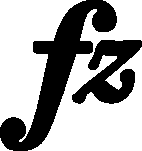



The  indication in GC is placed in such a manner that it is not certain whether Chopin wanted it to be valid from the 2nd or 3rd quaver of the bar. The insecurity results from a few overlapping factors:
indication in GC is placed in such a manner that it is not certain whether Chopin wanted it to be valid from the 2nd or 3rd quaver of the bar. The insecurity results from a few overlapping factors:
-
 was written still prior to the change of the part of the L.H. and if we are to consider only the notation of the original version, it is already after the second quaver of the L.H., in accordance with the notation of FE and EE. Most probably, it means that the new dynamics prevails from the beginning of the new phrase in the R.H.;
was written still prior to the change of the part of the L.H. and if we are to consider only the notation of the original version, it is already after the second quaver of the L.H., in accordance with the notation of FE and EE. Most probably, it means that the new dynamics prevails from the beginning of the new phrase in the R.H.; -
however, one cannot exclude that after having introduced the correction in the part of the L.H., including, among others, the addition of
 on the 1st quaver of the L.H., Chopin deliberated more thoroughly on the dynamics of this bar, including the relation of
on the 1st quaver of the L.H., Chopin deliberated more thoroughly on the dynamics of this bar, including the relation of  to the part of the L.H. in the new graphical layout. If it was the case,
to the part of the L.H. in the new graphical layout. If it was the case,  could have been valid already from the 2nd quaver in the bar. It is worth observing that the indication was written in GC – in the same place – twice. It could have been a correction of the inaccurately written sign by the copyist, however, if it was Chopin that performed it, one could relate it to the aforementioned reflection on the dynamics of the 1st half of the bar. According to us, it is, however, less likely.
could have been valid already from the 2nd quaver in the bar. It is worth observing that the indication was written in GC – in the same place – twice. It could have been a correction of the inaccurately written sign by the copyist, however, if it was Chopin that performed it, one could relate it to the aforementioned reflection on the dynamics of the 1st half of the bar. According to us, it is, however, less likely.
In the main text, we give the sign in accordance with [A], reconstructed on the basis of the compatible version of GC prior to the correction and FE and EE. The versions of GE1 and GE2 (→GE3) constitute possible interpretations of this notation, whereas only the latter can have a different meaning than the main text.
category imprint: Interpretations within context; Differences between sources
issues: Inaccuracies in GE
notation: Verbal indications
Back to note


